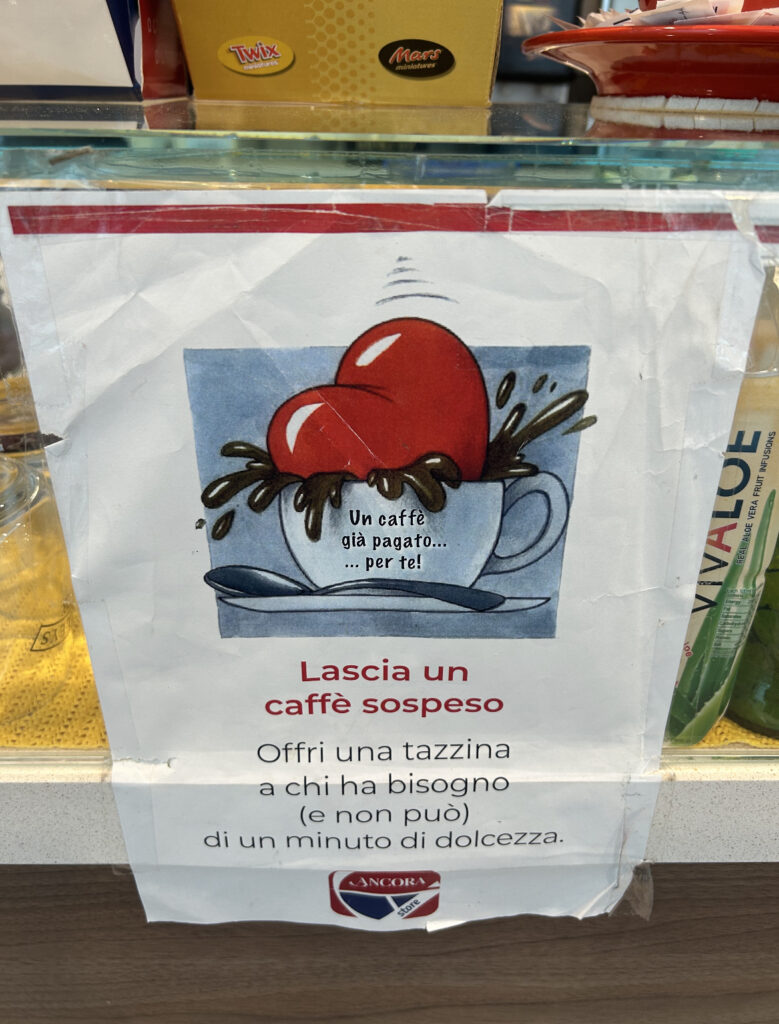The Italian Language and Me
The culmination of my five years of Italian language education has led me to this moment: studying abroad for a semester in Milan, Italy. After all, living in Italy for school presents ample opportunities to practice Italian with native speakers. After having taken a challenging, two-week long, intensive Italian language course upon arrival, I had finally finished my final Italian language course. I then felt prepared to take on this new linguistic environment, use the skills I have acquired, and live like an Italian. Now, one may think that with many years of schooling in a foreign language, complete fluency would be an obvious and expected result. However, language learning is never a straightforward process where you eventually reach a point when an alarm goes off saying “you’re fluent now!”. You are constantly using your brain to its fullest extent even for mundane tasks every day, which means that you are learning something new every day. Some days I have “good Italian days” and “bad Italian days”, as I like to call them, meaning that some days I feel completely comfortable existing in an Italian speaking environment but some days it feels like I am back to basics. So, here are some short anecdotes about some of the “good Italian days” and the “bad Italian days”.
(#1) Bad Italian Day
One great aspect about a big city like Milan is that there are many different cuisines to choose from when you want a meal. One night, I was craving Indian food, so I went to the Indian restaurant in my neighborhood, and I ordered my usual. The man at the counter told me it costed 18 euro. For some reason in that moment, I completely forgot the word for “18” in Italian. So, I stood there completely perplexed by the word he just said to me as he repeated it again a couple more times. After a good while, I eventually got it when he said it in English, but I was definitely a little embarrassed afterwards, especially considering I learned my numbers many many years ago. This was an example of a “bad Italian day”.
Even though this moment seems insignificant (especially because I did get my food eventually and it was delicious), it does hurt your confidence when you are trying to learn a new language. My cliché words of wisdom are to embrace these moments. Making what seem like silly or stupid mistakes is the best way to grow and improve, even if you get a little embarrassed sometimes. More often than not, people are willing and able to help you learn, so do not be afraid to practice.
(#2) Good Italian Day
An example of a “good Italian day” happened on a train to Florence one weekend. I was sitting by myself eating a delicious prosciutto and mozzarella sandwich when an older gentleman walked over and sat next to me. He turned to me and asked, in Italian, if he was on the right train; I checked my ticket and reassured him that he was. This small interaction transformed into a full conversation where he was interested in where I was from and what I was doing in Milan. When I told him I was a student studying political science and Italian, he seemed intrigued. He told me that he was surprised that an American would take interest in learning a language like Italian and come to study in Italy. He elaborated saying that people usually leave Italy for Germany, France, and or the United States in search of better opportunities and that it was refreshing to see someone come here. We continued talking for a while until we approached his stop. He said “ti saluto” and left. A small but impactful moment with a stranger, but it was profound in that I could hear this man’s intrigue and perspective on life in his native tongue, which is a special thing.
(#3) Good Italian Day
In addition to conversation, learning another language means you’re now able to navigate a world in which you can read as well! Not only is being able to read so important in a foreign country, but it also leads to new experiences, too. One last story, which was during another “good Italian day”: One day, I decided to go to a new bar (café) for breakfast. After having the usual (a coffee and a chocolate croissant), I noticed a sign right beside the cash register:

This sign roughly translates to: “Leave a suspended coffee; Offer a cup to who needs (and cannot afford) a minute of sweetness.” I realized that this was the same concept of “paying it forward” or buying the next person’s coffee if they could not afford it. It only cost an extra euro, so after I was done with my cappuccino and chocolate brioche (the Milanese word for “croissant”), I also bought a “caffe sospeso”. It was cheap and I’m sure it made someone’s day. It was also interesting and fun participating in a social and cultural institution that you could only access if you could read the sign.
Final Thoughts
Considering the fact that I started learning Italian when I was 14 years old in high school with only the knowledge of “ciao” and “buongiorno”, I am incredibly proud of myself, how far I’ve come, and what I’ve accomplished. I have also developed a newfound appreciation for bilinguals and polyglots, especially immigrants who need to use their second language to function in society daily. One of my favorite quotes in regard to linguistics and multilingualism is by Nelson Mandela in regard to the status of the Afrikaans language in South Africa: “…when you speak a language, English, well many people understand you, including Afrikaners, but when you speak Afrikaans, you know you go straight to their hearts.” Learning a language before vacation, study abroad, or even for fun goes a long way, even if you learn just a few key words like Hello, goodbye, please, thank you, and excuse me, people do appreciate it and it takes you one step closer to broadening your horizons and opening yourself to the world and new experiences.
Author
Alex C. is studying Political Science, Italian Studies, and Global Studies and studying abroad at Universita Cattolica del Sacro Cuore in Milan, Italy.

Comments are closed.